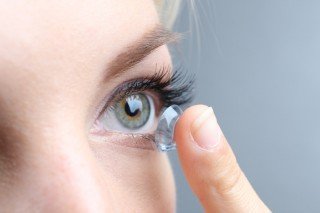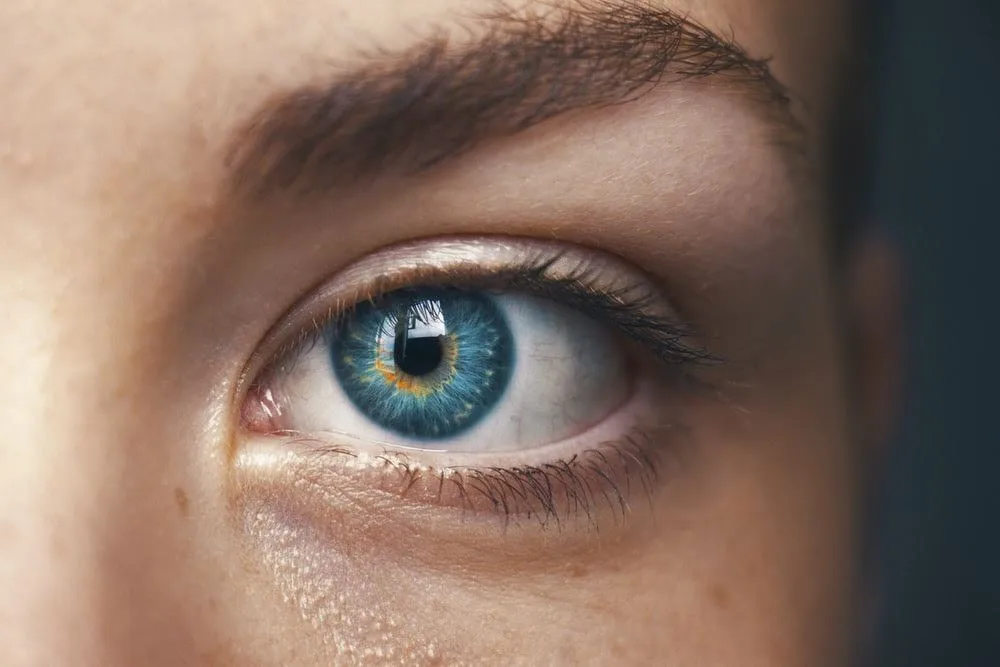If you wear contact lenses, you are most likely guilty of sleeping with them. Can this damage your eye health and longevity? Optometrist Roshni Patel, BSC (Hons) MCOptom reveals the do’s and don’ts when it comes to sleeping in contact lenses
Contact lenses are an incredibly popular form of vision correction, used by millions around the world every day. They provide convenience above and beyond wearing glasses – but they also come with their own considerations to bear in mind.
One of those considerations is sleeping. Almost everyone would take their glasses off before sleeping, but when it comes to contact lenses, it might seem inconvenient to take them out, particularly if it’s just a nap. But sleeping in contact lenses can impact your eye health significantly, and it’s vital to be aware of whether you can wear your lenses to sleep and what effects that might have.
Can you take a nap in contact lenses?
You should only nap in your contact lenses when you are wearing continuous (sometimes called extended) wear contact lenses. Made from a material tested and approved for wear whilst sleeping, this lens type should present no issues when napping.
Napping in contact lenses that are not designed for this can decrease the amount of oxygen your cornea (the front surface of your eye) needs to stay healthy. This puts you at greater risk of infections and corneal ulcers.
This is true whether sleeping for a short time or for extended periods.
Sleeping in contact lenses
Accidentally falling asleep in contact lenses
While you should always avoid sleeping in contact lenses that haven’t been designed for it, on occasion you may accidentally drop off while your contact lenses are still in.
If this happens, you need to be very careful about removing it. It’s likely that while asleep, your contact lenses will become drier and tighter on your eye, causing discomfort but also increasing the risk of damage to your cornea when removing it.
Start by using contact lens rewetting drops to hydrate the lens. This may reduce discomfort, and it’ll make the lens easier to remove.
 Once the lenses are hydrated, continue to be cautious when removing them. Once out, you may wish to use hydrating eye drops on your eye as well to reduce any dryness.
Once the lenses are hydrated, continue to be cautious when removing them. Once out, you may wish to use hydrating eye drops on your eye as well to reduce any dryness.
You should then leave your lenses out for at least a few hours. If you encounter lasting discomfort or have any visual issues, contact your optometrist as soon as possible to ensure there’s no damage.
Long-term effects of sleeping in contact lenses
Continuous-use contact lenses shouldn’t pose an issue when sleeping in them (if you are deemed suitable for them), however, it’s still healthier to have your eyes clear of contact lenses whilst resting and have a few nights off from wearing lenses from time to time when sleeping in these types of lenses.
However, any sort of obstruction to your eye reduces oxygen to the eye, and even lenses designed for long-term use may cause problems over an extended period of time, as well as discomfort, dryness, and increased risk of infection.
Juliet Anderson, a regular contact lens wearer, also provides a case study of her experiences when sleeping in contact lenses:
‘I’ve had experiences falling asleep with my contact lenses after drinking especially and my eyes really suffer because of it. When waking up after leaving them in, my eyes have felt really sore, strained, and dehydrated which you can also see as they become redder. Whilst I haven’t had any serious long-term symptoms, the pain in my eye usually lasts for half an hour or so after taking them out. I also avoid wearing mascara and any make up the next day to avoid any further irritation.’
Protecting your vision
Here are a number of ways you can protect your vision and encourage a good night’s sleep:
- Remove your contact lenses a while before bed. This will allow your eyes to rehydrate properly through blinking before you shut them all night.
- Eat a varied diet, rich in Vitamins A, C, and E and antioxidants. A healthy diet will help support your natural sleep, while vitamins and antioxidants will contribute towards maintaining your eye health.
- Avoid looking at screens too long, and take regular breaks. Extensive exposure to light from screens can cause difficulty getting to sleep and resting efficiently while looking at screens can also cause you to blink less – which can cause your eyes to dry out, especially if you wear contact lenses.
- Get regular exercise. Even going for walks can help. Stretching your muscles – particularly if you’ve been sitting at a desk all day – can help you sleep better, as well as provide fresh air and a chance to look at objects that are further away, which will both benefit your vision.
- Get regular eye tests. If your prescription changes over time, using the wrong prescription lenses or glasses can cause headaches and make it harder to sleep. Getting regular tests will ensure you’re always wearing the right strength for vision correction and will spot any health concerns as soon as possible.
- Reduce caffeine, alcohol, and nicotine. Regular use of these chemicals can generally affect your sleep and your health generally. While controlled amounts on occasion won’t have a major impact, taking too much on a regular basis can result in disrupted sleep and accordingly tired eyes.
By following these tips and taking care when using your contact lenses, you can protect your eye health for years to come.
About the author
Roshni Patel BSC (Hons) MCOptom at Lenstore Vision Hub qualified as an Optometrist in 2004. She has 16 years experience in both the clinical and commercial aspects of Optometry. Roshni is a member of the Association of Optometrists and alumna of the College of Optometrists






![women [longevity live]](https://longevitylive.com/wp-content/uploads/2020/01/photo-of-women-walking-down-the-street-1116984-100x100.jpg)









